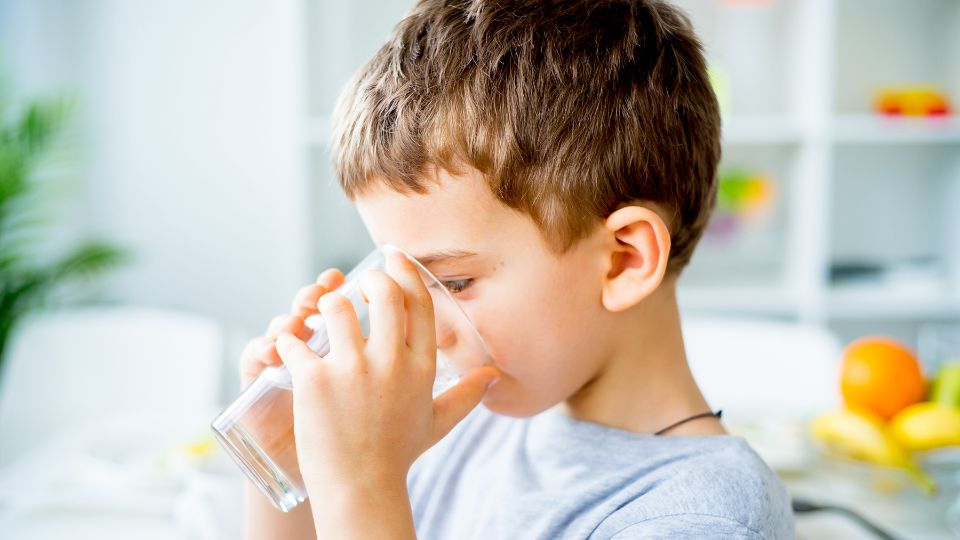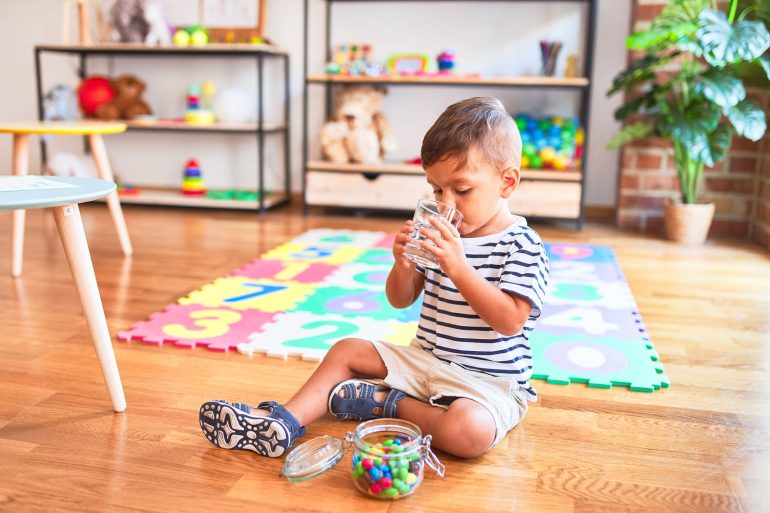Promoting Wellness: Healthy Habits for Ill Children
When caring for your ill child, prioritize healthy habits to aid recovery and well-being. Provide nutritious meals and snacks to boost immunity and aid in fighting infections. Encourage light physical activities like outdoor play or yoga to promote circulation and relaxation. Guarantee proper hydration and quality sleep to support overall health. Teach stress management techniques like deep breathing or mindfulness to ease their mind. Create a supportive environment with play therapy and self-care strategies. Remember, promoting wellness in ill children involves a holistic approach that nurtures their body and mind towards healing.
Key Takeaways
- Encourage nutritious meals and snacks for recovery and health.
- Engage in light physical activities for circulation and mood.
- Ensure proper hydration with frequent fluid intake.
- Prioritize quality sleep with consistent routines.
- Support emotional well-being through play and relaxation.
Importance of Healthy Eating

To support your child’s well-being during illness, focusing on maintaining a healthy diet is vital. Providing nutritious snacks and balanced meals is essential for their recovery and overall health. When your child is unwell, their body needs proper nourishment to help fight off infections and regain strength.
Including a variety of fruits, vegetables, whole grains, lean proteins, and dairy products in their diet can provide essential vitamins and minerals necessary for healing.
Opt for easy-to-digest foods like soups, smoothies, and steamed vegetables to prevent any added stress on their digestive system. Encourage your child to drink plenty of water to stay hydrated and aid in flushing out toxins. Offering small, frequent meals throughout the day can help maintain energy levels and prevent nausea that may accompany certain illnesses.
Encouraging Physical Activity

Encourage your child to engage in light physical activities to promote circulation, boost mood, and support their recovery journey. Outdoor play can be invigorating – a simple game of tag or kicking a ball around can get the blood flowing and help with overall well-being.
If your child prefers indoor games, consider setting up an obstacle course or engaging in a dance-off to keep them active and entertained.
Team sports offer a great way to socialize and stay active. If your child is up for it, joining a local sports team can provide both physical and mental benefits during their recovery.
On the other hand, solo activities like yoga or stretching exercises can also be beneficial. These activities can help improve flexibility and strength while promoting a sense of calm and relaxation.
Proper Hydration Practices

Ensuring your child stays adequately hydrated is essential for supporting their overall health and recovery process. Water intake plays a significant role in maintaining proper bodily functions, especially when your little one is unwell. Illness can lead to increased fluid loss through sweating, fever, or respiratory issues, making it even more important to focus on hydration.
Along with water, electrolyte balance is essential for your child’s recovery. Electrolytes like sodium, potassium, and magnesium help regulate nerve and muscle function, making them critical during times of illness.
To maintain excellent hydration, encourage your child to sip fluids frequently throughout the day. Offer clear fluids like water, oral rehydration solutions, or diluted fruit juices to prevent dehydration. If your child is experiencing vomiting or diarrhea, fluid replacement becomes even more important. In such cases, small, frequent sips of an oral rehydration solution or water can aid in maintaining hydration levels.
Hydration strategies like using a straw, offering popsicles, or setting reminders can make it easier for your child to consume enough fluids. Remember, staying hydrated is key to supporting your child’s recovery journey.
Quality Sleep and Rest
Ensuring your ill child gets quality sleep and rest is essential for their recovery. Simple sleep hygiene tips, like keeping a consistent bedtime routine and creating a calm sleep environment, can make a significant difference.
Sleep Hygiene Tips
Establishing a calming bedtime routine can greatly improve the quality of sleep and rest for ill children. Consistency is key; try to maintain a regular bedtime and wake-up time to regulate their internal clock.
Encourage short naps during the day to prevent overtiredness, but make sure they don’t interfere with nighttime sleep. Creating a soothing sleep environment is essential. Guarantee the room is dark, quiet, and at a comfortable temperature. Soft pillows and cozy blankets can enhance their comfort.
Implement relaxation techniques before bed, such as reading a calming story or listening to gentle music. These activities can signal to your child that it’s time to wind down and prepare for sleep. Avoid stimulating activities like screen time close to bedtime, as they can disrupt the natural sleep cycle.
Importance of Rest
Quality sleep and rest are essential for the well-being and recovery of ill children. Ensuring your child gets enough rest is vital in supporting their immune system and overall health. Establishing bedtime routines can help signal to their body that it’s time to wind down. Consider incorporating relaxation techniques such as deep breathing or gentle music to create a calming atmosphere before sleep.
Encouraging self-care practices can also aid in promoting quality rest. Teaching your child the importance of downtime and relaxation can empower them to prioritize their well-being. Simple activities like reading a book together or practicing mindfulness exercises can be beneficial in promoting a sense of calm.
Stress Management Techniques
When your child is feeling overwhelmed, try incorporating stress management techniques into their routine.
Encourage deep breathing exercises to help them relax.
Introduce mindfulness meditation for mental clarity.
Consider guided imagery sessions to spark their imagination and calm their mind.
These practices can provide a sense of peace and empowerment during challenging times.
Deep Breathing Exercises
Take a moment to practice deep breathing exercises, a simple yet effective stress management technique that can help calm your mind and body.
Deep breathing is a cornerstone of relaxation techniques and mindfulness practice. By focusing on your breath, you activate the relaxation response in your body.
Start by finding a comfortable position, close your eyes if it helps, and take a slow, deep breath in through your nose, allowing your belly to expand. Hold for a moment, and then exhale slowly through your mouth. Repeat this process several times, feeling the tension release with each breath.
Deep breathing exercises can be done anytime, anywhere, making them a convenient tool for managing stress. Whether you’re feeling overwhelmed by medical treatments or simply need a moment of peace, deep breathing can provide a sense of calm and control.
Mindfulness Meditation Practice
If you’re looking to further enhance your stress management techniques beyond deep breathing exercises, consider incorporating mindfulness meditation practice into your routine. Mindfulness techniques offer a powerful way to cultivate relaxation and inner peace, aiding in coping with the challenges that come with illness.
By engaging in meditation, you can benefit from improved focus, reduced anxiety, and a greater sense of overall well-being.
The benefits of mindfulness extend beyond the meditation session itself. Practicing mindfulness regularly can help you develop resilience in the face of adversity, enhance emotional regulation, and promote better sleep patterns.
Through mindfulness meditation, you can learn to observe your thoughts and feelings without judgment, fostering a sense of acceptance and self-awareness.
Take a few moments each day to sit quietly, focus on your breath, and center yourself in the present moment. Embrace the stillness and let go of any tension or worries.
Guided Imagery Sessions
Consider incorporating guided imagery sessions into your stress management routine to enhance your coping strategies and promote relaxation. Guided imagery involves using relaxation techniques and visualization exercises to create a sense of calm and peace within yourself.
During these sessions, you’ll be guided through positive affirmations and healing imagery to help alleviate stress and anxiety.
By engaging in guided imagery sessions, you can tap into the power of your mind to reduce tension and foster a state of tranquility. These sessions provide a safe space for you to immerse yourself in soothing mental images, allowing your body to relax and your mind to unwind.
Through the practice of guided imagery, you can learn to channel your thoughts towards positivity and healing, cultivating a sense of inner peace amidst challenging circumstances. By incorporating these sessions into your routine, you can empower yourself to manage stress more effectively and promote overall wellness.
Start your guided imagery journey today and experience the transformative benefits it can bring to your well-being.
Creating Supportive Environments
To foster a nurturing atmosphere for ill children, focus on cultivating a space that promotes comfort and healing. Creating soothing, calming spaces is essential for their well-being. Incorporating nature elements into their environment can have a profound impact on their mental and emotional state.
Natural elements like plants, natural light, and views of the outdoors can help reduce stress and anxiety, creating a more relaxing atmosphere.
When designing the space for ill children, consider incorporating soft colors like blues and greens, which are known for their calming effects. Use comfortable bedding, soft lighting, and gentle sounds to create a peaceful environment. Adding elements like nature-inspired artwork or indoor plants can also bring a sense of the outdoors inside, providing a connection to nature that can be comforting.
Building Immune System Strength
Strengthen your child’s immune system through simple lifestyle changes and healthy habits. Boosting the immune system can help your child fight off illnesses more effectively.
Consider incorporating immune system boosters and natural remedies into your child’s routine. Vitamin supplements, such as Vitamin C and D, can play a vital role in supporting immune function. Herbal remedies like echinacea and elderberry are also known for their immune-boosting properties.
Encouraging your child to maintain a balanced diet rich in fruits, vegetables, and whole grains can provide essential nutrients that support a healthy immune system. Additionally, ensuring your child gets enough sleep, stays hydrated, and engages in regular physical activity can further strengthen their immune system.
Be mindful of minimizing stress levels in your child’s life, as chronic stress can weaken the immune system. By incorporating these immune-boosting strategies into your child’s daily routine, you can help them stay healthier and more resilient against illnesses.
Monitoring Medication and Treatments
Make sure you carefully monitor your child’s medication and treatments to track their progress and make sure they’re receiving the most effective care.
Medication adherence is vital in managing your child’s illness. It’s important to follow the prescribed dosage and timing to maximize the treatment’s effectiveness. Keep a record of when each dose is taken and any side effects observed. This information will help your healthcare provider adjust the treatment plan if needed.
Additionally, treatment monitoring involves more than just medications. It includes therapies, lifestyle adjustments, and follow-up appointments.
Stay engaged with your child’s healthcare team to understand the treatment goals and progress. Ask questions, share observations, and discuss any concerns you may have. Your active involvement can lead to better outcomes for your child.
Fostering Emotional Well-being

Guarantee your child’s emotional well-being by creating a supportive and nurturing environment at home. When dealing with illness, emotional health is just as important as physical health.
Engage your child in activities like play therapy, which can help them express their feelings and fears in a safe and controlled setting. Encourage the use of self-care strategies to empower them to take control of their emotions.
Incorporating art therapy into their routine can provide a creative outlet for emotional expression. Drawing, painting, or other creative activities can help them process their emotions and reduce stress.
Additionally, teaching your child relaxation techniques, such as deep breathing exercises or guided imagery, can help them manage anxiety and promote a sense of calm.
Frequently Asked Questions
How Can I Help My Ill Child Stay Socially Connected?
To help your ill child stay socially connected, encourage virtual playdates, community support, online games, and creative crafts. These activities can provide a sense of normalcy, companionship, and joy during challenging times.
Are There Specific Activities to Avoid During Illness Recovery?
During illness recovery, it’s essential to follow exercise restrictions to prevent setbacks. Avoid strenuous activities that could strain the body. Limit screen time to promote rest and healing. Prioritize relaxation and low-energy pastimes for a smoother recovery journey.
What Role Does Laughter Play in Promoting Wellness for Sick Children?
Laughter therapy is essential for sick children. Humor boosts morale, reduces stress, and aids healing. Encourage giggles, jokes, and funny movies. Laughter’s benefits go beyond amusement; it’s a crucial part of holistic wellness.
Can Pets Positively Impact the Well-Being of Ill Children?
Yes, pets can have a profound positive impact on the well-being of ill children. Through pet therapy, animals offer emotional support, companionship, and a source of joy. Their presence can uplift spirits and provide comfort during challenging times.
Are There Alternative Therapies That Can Complement Traditional Treatments?
You can explore alternative therapies to complement traditional treatments. A holistic approach, including integrative medicine and complementary treatments, may enhance overall wellness. It’s important to discuss these options with healthcare providers for a personalized plan.
Conclusion
To sum up, by promoting healthy habits for ill children such as encouraging physical activity, proper nutrition, quality sleep, and stress management, you can help support their overall wellness and recovery.
Remember to create a supportive environment, monitor medication and treatments, and prioritize emotional well-being.
By focusing on these key aspects, you can help your child thrive and navigate their health challenges with strength and resilience.
Stay positive and keep up the great work!

Chad Adan Kace, a young dad from Vermont, shares his parenting journey with a touch of humor and lots of love. Father to a lively baby, he explores the joys and challenges of fatherhood through his stories.







